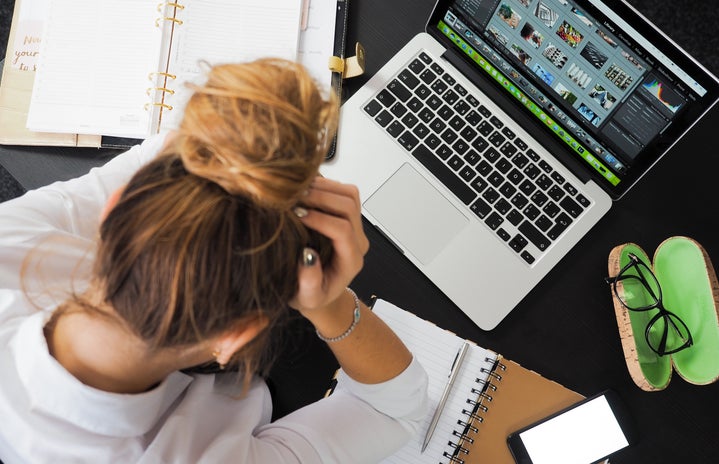Before I get into some tips about how to handle migranes here is a little bit about my migraine journey:
I have been experiencing severe migraines since I was 13. Migraines run in my family, so it was not a big surprise when I started having them. However, figuring out what was causing them and how to treat them was a bit difficult. Migraines contain a variety of symptoms which means they can be different for everyone. Some common symptoms are throbbing head pain, nausea, sensitivity to light and fatigue. My migraines consist of severe nausea accompanied by an intense throbbing pain in the middle of my head that usually spreads to my eyes. After I was experiencing multiple migraines a month, I scheduled an appointment with a neurologist. At first, my neurologist suggested trying alternative treatments to medicine such as meditation, yoga and exercise. These methods helped and the number of migraines I was experiencing decreased each month however, they were still severe. After I talked to my neurologist about the intensity of my migraines even with using these methods he prescribed me medicine to help. I have found that a combination of medication and other methods have successfully helped me handle my migranes. Today, I still do not know what causes my migraines but I have found ways to help me cope with them.
Here are some things to do when you have a migraine:
Drink Water: It is extremely important to stay hydrated when you have a migraine. Whe I am experiencing a migraine, I keep a glass of water right beside me which helps me ensure that I am staying hydrated.
Rest: Resting is one of the best things you can do when you have a migraine. Taking a nap can sometimes make the migraine go away or make it less painful.
Avoid Screens: Any form of technology consists of blue light which can cause people to get severe headaches. Sometimes when I spend too much time working on the computer, I get very bad migraines as a result. Since technology influences my migraines, I bought a pair of blue light glasses because they block out the blue light that comes from technology. If you notice that your migraines are triggered by computer time, I suggest getting a pair of blue light glasses.
Taking over the counter and prescription medicine: Whenever I have a migraine I always take my prescribed medicine from my neurologist to help with nausea and throbbing head pain. However, over the counter pain relievers also help ease the severity of head pain such as Excerdin, Advil and Tylenol along with many other forms of ibuprofen. Always check with your doctor before you take any type of medicine.
Going to the chiropractor: About two years ago, I started going to the chiropractor weekly. Going to the chiropractor and getting my head, neck and back adjusted has lowered the intensity of my migraines because poor posture can lead to migraines. I highly recommend going to the chiropractor because chiropractic care has helped me tremendously.
Yoga: There are many yoga poses that are proven to help alleviate migraine pain such as the head-to-knee forward bend and the downward facing dog pose. This is not usually possible while having a migraine but doing yoga can be helpful before or after a migraine.
I have also read about other things that you can do when you have a migraine such as going to acupuncture, using essential oils and even eating watermelon.
I hope these tips help you if you experience severe migraines or just headaches in general!
*Always check with your doctor before trying any of these methods*



